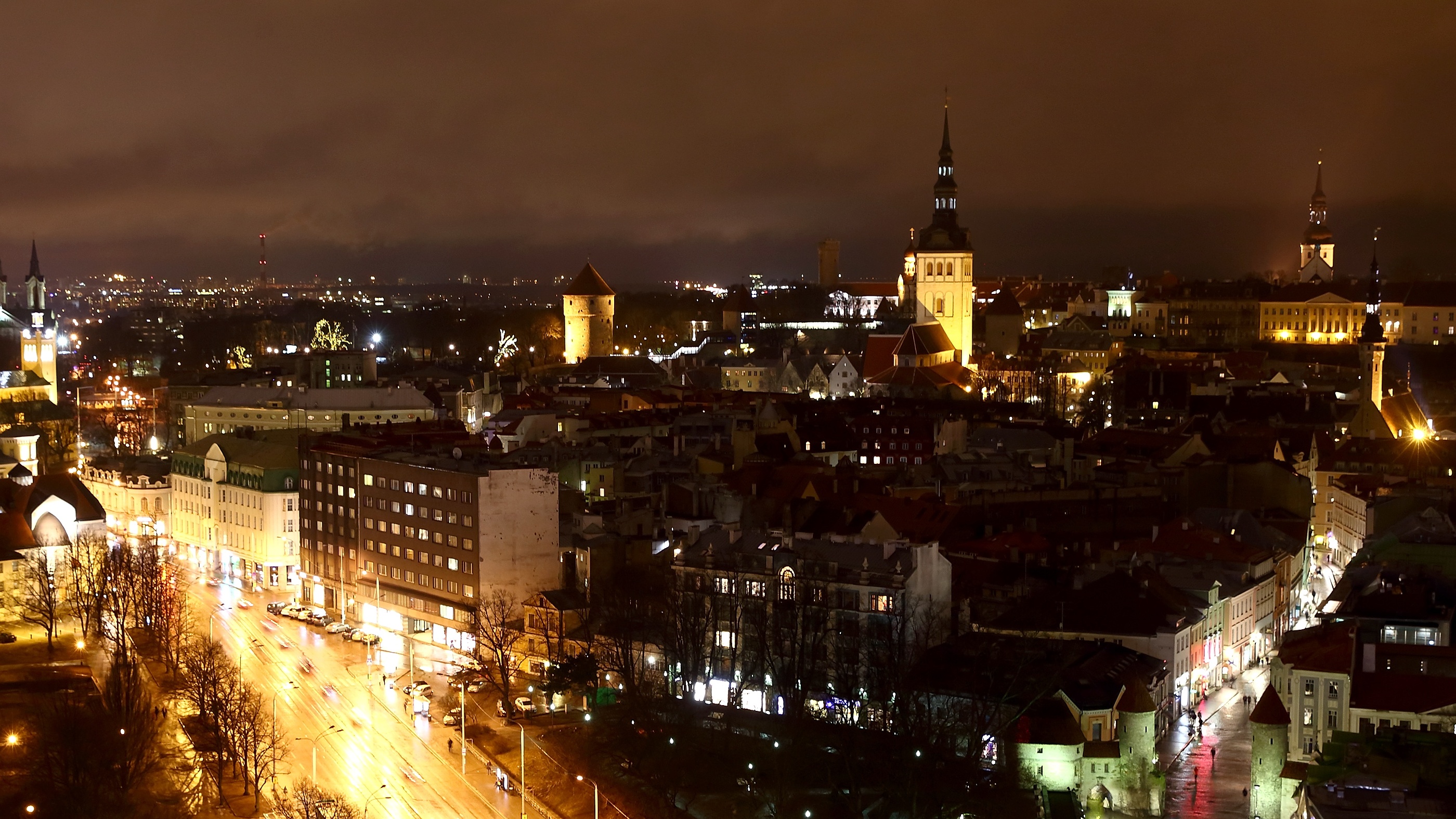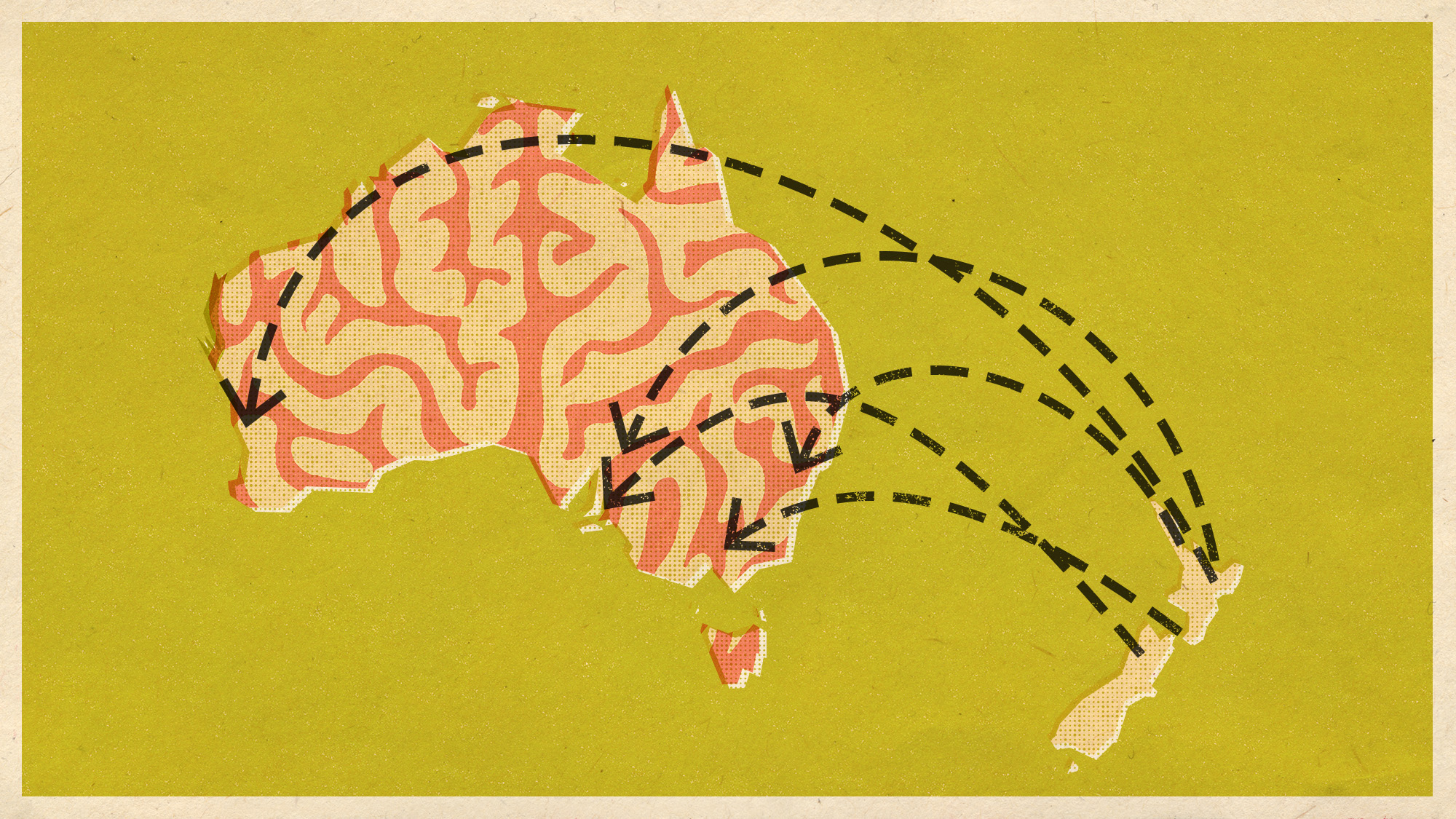Estonia launches ‘digital nomad visa’ scheme to attract remote workers
The Baltic state is aiming to beat Covid recession while boosting status as a ‘bureaucratic innovator’

A free daily email with the biggest news stories of the day – and the best features from TheWeek.com
You are now subscribed
Your newsletter sign-up was successful
The Estonian government is hoping to boost the country’s Covid-hit economy with a new visa scheme that ministers say “will strengthen Estonia’s image as an e-state”.
The small Baltic state is home to just 1.3 million, but hopes to increase its working population by offering a “digital nomad visa” targeting non-European remote-working employees or freelancers.
Applicants for the scheme must show they are making at least €3,504 (£3,174) per month and “provide evidence, such as client lists, which prove their professional role”, reports Politico.
The Week
Escape your echo chamber. Get the facts behind the news, plus analysis from multiple perspectives.

Sign up for The Week's Free Newsletters
From our morning news briefing to a weekly Good News Newsletter, get the best of The Week delivered directly to your inbox.
From our morning news briefing to a weekly Good News Newsletter, get the best of The Week delivered directly to your inbox.
If successful, so-called digital nomads will be able to remain in Estonia for 12 months, as well as getting the green light for up to 90 days of travel across Europe’s borderless 26-country Schengen Area.
The plan should boost Estonia’s “growing credentials as a bureaucratic innovator” while “closing a legal loophole” that previously meant many remote workers could not legally work in the countries they were visiting, the news site adds.
Ruth Annus, head of the Interior Ministry Department, told Politico that Estonia was “unique” in offering “a tailor-made visa for the digital nomad community”.
“Digital nomads also use services which are taxed in Estonia, and we believe they create diversity and enrich the community,” she said.
A free daily email with the biggest news stories of the day – and the best features from TheWeek.com
Minister of the Interior Mart Helme added: “The digital nomad visa will strengthen Estonia’s image as an e-state and give Estonia a more influential voice on the international level.”
Lonely Planet notes that “forward-thinking” Estonia has already introduced an e-residency programme allowing entrepreneurs to “access the government’s digital services and start a business within the European Union” without needing to be present in the country.
Joe Evans is the world news editor at TheWeek.co.uk. He joined the team in 2019 and held roles including deputy news editor and acting news editor before moving into his current position in early 2021. He is a regular panellist on The Week Unwrapped podcast, discussing politics and foreign affairs.
Before joining The Week, he worked as a freelance journalist covering the UK and Ireland for German newspapers and magazines. A series of features on Brexit and the Irish border got him nominated for the Hostwriter Prize in 2019. Prior to settling down in London, he lived and worked in Cambodia, where he ran communications for a non-governmental organisation and worked as a journalist covering Southeast Asia. He has a master’s degree in journalism from City, University of London, and before that studied English Literature at the University of Manchester.
-
 How to Get to Heaven from Belfast: a ‘highly entertaining ride’
How to Get to Heaven from Belfast: a ‘highly entertaining ride’The Week Recommends Mystery-comedy from the creator of Derry Girls should be ‘your new binge-watch’
-
 The 8 best TV shows of the 1960s
The 8 best TV shows of the 1960sThe standout shows of this decade take viewers from outer space to the Wild West
-
 Microdramas are booming
Microdramas are boomingUnder the radar Scroll to watch a whole movie
-
 What's Jeff Bezos' net worth?
What's Jeff Bezos' net worth?In Depth The Amazon tycoon and third richest person in the world made his fortune pioneering online retail
-
 'Brain drain' fear as record numbers leave New Zealand
'Brain drain' fear as record numbers leave New ZealandUnder The Radar Neighbouring Australia is luring young workers with prospect of better jobs
-
 Ghost kitchens are pulling a disappearing act
Ghost kitchens are pulling a disappearing actunder the radar The delivery-only trend is failing to live up to the hype built up during the pandemic
-
 The birth of the weekend: how workers won two days off
The birth of the weekend: how workers won two days offThe Explainer Since the 1960s, there has been talk of a four-day-week, and post-pandemic work patterns have strengthened those calls
-
 Why household wealth took off during the pandemic
Why household wealth took off during the pandemicUnder The Radar The Covid-19 pandemic caused a lot of pain and hardship, but new research shows it also left most Americans wealthier
-
 Empty office buildings are blank slates to improve cities
Empty office buildings are blank slates to improve citiesSpeed Read The pandemic kept people home and now city buildings are vacant
-
 Inflation vs. deflation: which is worse for national economies?
Inflation vs. deflation: which is worse for national economies?Today's Big Question Lower prices may be good news for households but prolonged deflation is ‘terrible for the economy’
-
 America's 'cataclysmic' drop in college enrollment
America's 'cataclysmic' drop in college enrollmentToday's Big Question "The slide in the college-going rate since 2018 is the steepest on record"